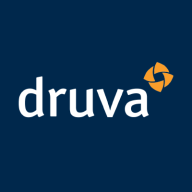

Acronis Cyber Protect and Druva Phoenix are leading products in data protection and management. While Acronis Cyber Protect offers a competitive edge with its comprehensive integration of backup and advanced cybersecurity features, Druva Phoenix's strength lies in its cloud-native capabilities and scalability, suggesting it may provide better value for some organizations.
Features: Acronis Cyber Protect integrates backup, cybersecurity, and data protection into one unified solution, providing features such as anti-malware protection, vulnerability assessments, and universal restore. Druva Phoenix stands out with cloud-native data backup and disaster recovery, focusing on scalability and ease of use, offering a conveniently managed platform for data across various endpoints.
Room for Improvement: Acronis Cyber Protect could enhance cloud integration, improve user interface intuitiveness, and expand scalability options. Druva Phoenix might benefit from broader support for non-cloud environments, enhanced cybersecurity features, and a more straightforward pricing model.
Ease of Deployment and Customer Service: Acronis Cyber Protect is known for straightforward deployment and strong support, aiding in quick implementation and resolution. Druva Phoenix's cloud-native architecture simplifies deployment, particularly for enterprises with distributed networks, providing flexibility that suits larger and geographically diverse organizations.
Pricing and ROI: Acronis Cyber Protect offers competitive pricing and solid ROI, appealing to cost-sensitive businesses seeking integrated solutions. While Druva Phoenix may have higher initial setup costs, its significant ROI is through scalability and reduced infrastructure overhead, making it an attractive option for organizations prioritizing cloud-native environments.
| Product | Market Share (%) |
|---|---|
| Acronis Cyber Protect | 5.3% |
| Druva Phoenix | 0.8% |
| Other | 93.9% |


| Company Size | Count |
|---|---|
| Small Business | 67 |
| Midsize Enterprise | 15 |
| Large Enterprise | 23 |
| Company Size | Count |
|---|---|
| Small Business | 4 |
| Midsize Enterprise | 3 |
| Large Enterprise | 2 |
Druva Phoenix is a comprehensive cloud-based data protection and management solution that enables organizations to securely backup, recover, and manage their data across endpoints, physical servers, virtual machines, and cloud applications. With its scalable and flexible architecture, Druva Phoenix simplifies data protection and eliminates the need for traditional backup infrastructure.
By leveraging the power of the cloud, Druva Phoenix offers organizations a cost-effective and efficient way to protect their critical data. It provides automated backup and recovery capabilities, ensuring that data is always protected and easily recoverable in the event of a disaster or data loss. With its global deduplication and compression technology, Druva Phoenix minimizes storage requirements and reduces costs.
Druva Phoenix also offers advanced features such as point-in-time recovery, allowing organizations to restore data to a specific point in time, and granular file-level recovery, enabling users to recover individual files or folders. Its intuitive web-based console provides a centralized view of all protected data, making it easy to manage and monitor backups across the entire organization.
In addition to data protection, Druva Phoenix offers comprehensive data management capabilities. It enables organizations to gain insights into their data through advanced analytics and reporting, helping them make informed decisions and optimize their storage resources. Druva Phoenix also supports legal and compliance requirements by providing eDiscovery capabilities and ensuring data is retained and disposed of according to regulatory guidelines.
With its cloud-native architecture, Druva Phoenix offers organizations the flexibility to protect and manage their data across a wide range of environments, including on-premises, remote offices, and cloud applications such as Microsoft 365 and Google Workspace. It seamlessly integrates with popular cloud platforms like AWS and Azure, allowing organizations to leverage their existing cloud investments.
We monitor all Cloud Backup reviews to prevent fraudulent reviews and keep review quality high. We do not post reviews by company employees or direct competitors. We validate each review for authenticity via cross-reference with LinkedIn, and personal follow-up with the reviewer when necessary.